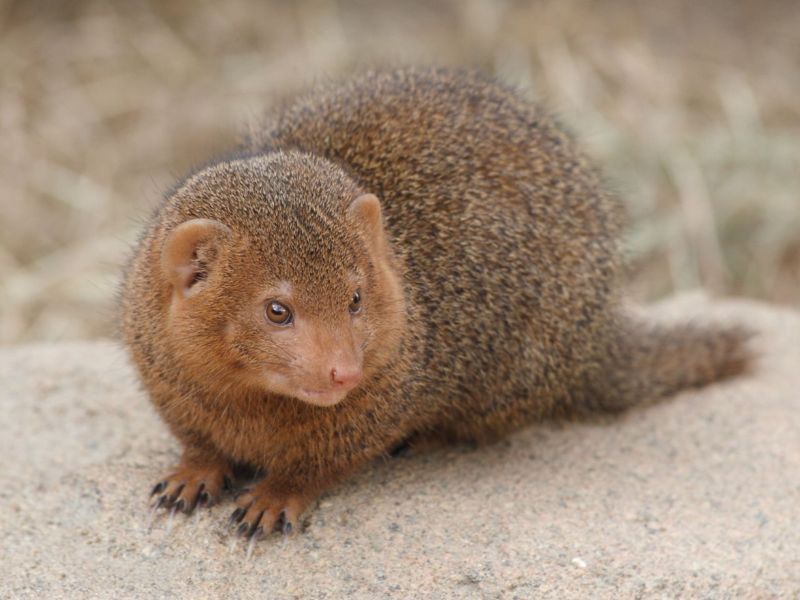Animals pass-on practical knowledge and learning to their counterparts, researchers have proved this week.
 Amongst humans, we routinely talk about traditions passing down through the generations. But scientists usually assume that the majority of animal species are incapable of such a feat. With a few rare exceptions seen amongst certain marine mammals and other primates, the apparent transmission of specific skills or behaviours amongst simpler animals is usually labelled as "instinctive". But Exeter University researchers Corsin Muller and Michael Cant, who have been monitoring mongooses in Africa, have found that these small carnivores definitely influence their descendents with the fruits of their wisdom.
Amongst humans, we routinely talk about traditions passing down through the generations. But scientists usually assume that the majority of animal species are incapable of such a feat. With a few rare exceptions seen amongst certain marine mammals and other primates, the apparent transmission of specific skills or behaviours amongst simpler animals is usually labelled as "instinctive". But Exeter University researchers Corsin Muller and Michael Cant, who have been monitoring mongooses in Africa, have found that these small carnivores definitely influence their descendents with the fruits of their wisdom.
Mongooses make attractive study subjects for this kind of work because they are highly social animals that live in groups within which young pups pair up with older unrelated "escorts" whose job it is to show them the ropes for their first few months of life. They also have two separate strategies for opening up tough food morsels such as nuts or creatures that live in hard shells: they either gnaw holes in them or throw them at something hard until they break; but each animal tends to favour one of the two techniques.
To find out why, the researchers made modified "Kinder" surprise eggs containing a tasty fish and rice treat and initially filmed the escorts as they attempted to crack into them. Once they'd identified the escorts as "hurlers", "biters" or "both" they then began to present the treats to the escorts in front of their oung mongoose proteges, who watched as they opened them up to obtain the food. As a control, one group of animals were presented with already-open treats.
After the youngsters had observed their escorts opening treats ten times, the researchers then tested the young animals themselves with their own "Kinder" eggs. The strategy they used, the Muller and Cant found, tended to be the one they'd watched their escort use. But the "controls" that had watched their escorts eat from alre dy-open eggs favoured neither technique, indicating that they weren't just copying their escorts general behaviour. This, say the researchers, shows that the animals can clearly learn off each other, enabling them to transmit survival tips and techniques generationally...









Comments
Add a comment